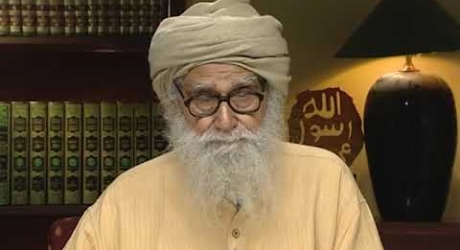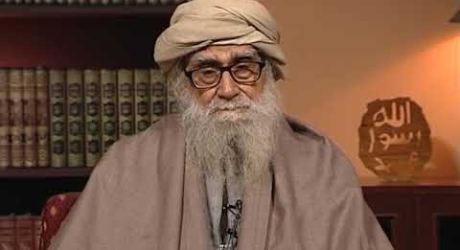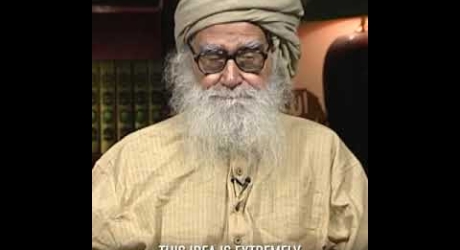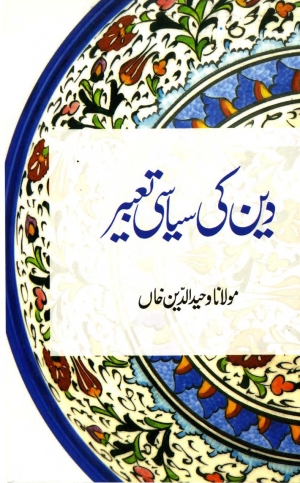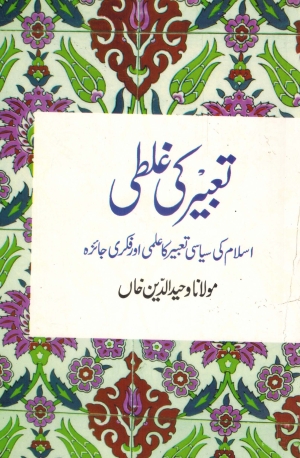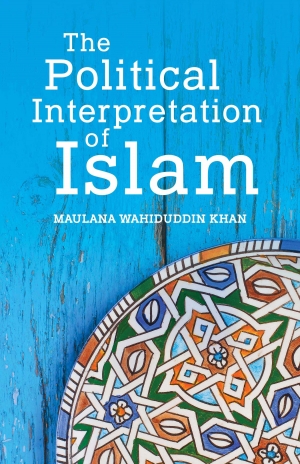What is a state? It is an organised political community under one government. Islam does not prescribe any form of the state. Nevertheless, Islamic teachings seem to be so comprehensive that they embrace all essential issues of life, including the state and its related national or international problems. Establish an ideal Islamic state is not the main target of Islam, as is wrongly projected by some groups of Muslims. An Islamic state may ultimately emerge from a society consisting of sincere, practising Muslims, and its government may take any workable form. Such a state, according to the Quran, is a worldly reward of God granted to His righteous servants when He wills and not a direct target towards which the believers must struggle.
A state governed by Muslims is not necessarily an Islamic state. Apart from its monotheistic doctrinal basis, an Islamic state would, in practice, be identified with the summum bonum principle of ‘no-compulsion.’ No compulsion should be exercised, either before or after the gaining of power. Compulsion in any sphere whatsoever, particularly in religious matters, is strictly prohibited and condemned in Islam. Islam, moreover, does not allow its followers to rebel against any established state, even though it may not seem to be in accordance with the Islamic ideal. Compulsion on the part of the state should never be resisted through counter-compulsion. It can only be countered through negotiation, backed up by conviction. It ensures such stability of law and order as will subsequently help promote Islamic values, and this may gradually prepare a firm ground for a real Islamic state to stand on.
Featured Articles
Featured Videos
FAQs
Establishing an Islamic state is not the mission given to Muslims. The Prophet of Islam never said: ‘I have been sent to establish an Islamic state.’ The Prophet’s mission was a peaceful dawah mission—inviting people to God’s path—and not a political mission.
If we read the Quran, we will not find any commandment that says: “Aqim dawlat al-islam” or ‘Establish an Islamic State.’ Why is a commandment of this kind absent in the Quran? The reason for this is given in the Hadith in these words: “Kama takunu kazalika yuammaru alaykum.” (Mishkat al-Masabih) That is, “As you are, so shall be your rulers.” It means that according to Islam, government emerges from the society. It is not imposed on the society from the outside.
Abu Bakr al-Siddiq (d. AD 634) was the first political head in Islam. But he was referred to as amir al-mominin, or leader of Muslims, rather than khalifah al-muslimin. What was the method through which Abu Bakr reached this position? After the death of the Prophet, the Sahaba or Companions of the Prophet assembled in a place called Saqifa Bani Saidah in Madinah. At this place, all the people came together and open consultations took place between the Companions. Through the consensus of the Companions, Abu Bakr al-Siddiq became the head of the state of Madinah.
According to available information, ISIS is a Sunni extremist group. In its self-proclaimed status as a ‘Caliphate’, it claims religious authority over all Muslims across the world and aspires to bring most of the Muslim-inhabited regions of the world under its political control, beginning with Iraq, Syria and other territories in the Levant, including Jordan, Israel, Palestine, Lebanon, Cyprus and part of southern Turkey. In June 2014, it had at least 4,000 fighters in its ranks in Iraq. The number of fighters in the group has increased to 50,000 in Syria and 30,000 in Iraq. It has claimed responsibility for attacks on government and military targets and for attacks that have killed thousands of civilians.
This kind of a self-proclaimed state or caliphate has no place in Islam because it has no sanction in the Quran and Sunnah. Such a state is totally against the Islamic spirit. According to the Quran and Sunnah, no person has the right to proclaim sovereignty on his own. To declare someone as a sovereign ruler is solely the people’s domain, and not that of any particular individual. The case of ISIS is certainly a case of illegal coup, rather than an Islamically-lawful act.
Source: The True Face of Islam
In present times, numerous violent movements are being spearheaded in the name of establishing the ‘Islamic System’ or the ‘Prophetic System’. These movements, however, are simply a ruse to engage in a quest for political leadership in the name of Islam, and this is in spite of the fact that to launch and conduct a movement in order to acquire political dominance is itself not permissible in Islam.
The aim of a genuine Islamic movement is the Islamization of individuals (The Quran, 20:76), not the Islamization of the government or the state. Accordingly, for centuries the Sufis focused on the Islamization of individuals. This work continued, using peaceful methods, and never became a source for spreading hatred and violence. The Sufis always promoted peace and humanity, while the so-called ‘revolutionary Islamic’ movements of today are producing completely the opposite results.
The linking of Islam with hatred and violence is entirely the result of the misguidance of certain modern-day so-called Muslim leaders, who have been spearheading violent movements aimed at acquiring political power. Through their actions, these people have made Islam seem like a religion of hatred and violence, although, in actual fact, the Islam sent by God is a religion of peace and concern for the welfare for all. A true Muslim is one who is concerned about the welfare of humanity, not someone who is at war with humanity.
Source: Spirit of Islam September 2015
The spiritual target Islam sets before man is given in the Quran in these words: 'A soul at rest' (89:27). Thus the spiritual goal of Islam is to attain this state of peace in the soul.
According to the Quran, this is the ultimate stage in a man's spiritual development. When he reaches this stage of progress, he qualifies himself to be ushered into Paradise, the perfect and eternal world of the Hereafter. The Quran addresses such souls in these words: ‘O serene soul! Return to your Lord joyful, and pleasing in His sight. Join My servants and enter My paradise' (89:27-30).
In this world man has to lead his life in circumstances in which he experiences various kinds of situations: there are times of gain, times of loss; times of happiness and times of grief. Sometimes he receives good treatment at the hands of others, at other times his fate is quite otherwise.
The ideal human being of the Quran is one who undergoes all these experiences without losing his integrity. Under no circumstances is his inner peace disturbed. However, untoward the occasion, he can maintain his natural balance. Success does not make him proud. Power does not make him haughty. No bad treatment by others drives him to seek vengeance in anger. At all events, he remains serene. It is such a man who is called 'a peaceful soul' in the Quran. And it is this man who, according to the Quran, has achieved the highest spiritual state.
The realization of God joins man with his Maker. Such communion with the divine brings about a state of spiritual elevation. Having been thus raised to a higher plane of existence, man becomes of a 'sublime character,' (68:4) as it is expressed in the Quran.
Source: The True Face of Islam
Contrary to common belief, gaining political power is not the main objective of Muslims. This is a misconception.
When the Quran says, "And religion is wholly for God" it portrays the most important aspect of the change of times. This change has reduced the status of political power to the point where it is no longer necessary for believers to wage a war for its acquisition, as it is no longer needed to secure the desired benefits. Non-political institutions serve this purpose equally well.
In modern time those nations who have understood this have achieved success even without having political power. Some have become established and excelled in the field of education, while others have set up empires in industry, communications or finance. The last in the list of these non-governmental empires is that of computers. This has given man the opportunity to keep his finger on the pulse of human activity not only at the national level, but also at the international level.
This mission was undertaken and brought to a successful conclusion at the internal level within Arabia during the life of the Prophet. Later, during the pious caliphate, the Sassanid and Byzantine empires were dismantled with special divine succour. Consequently, intellectual oppression at the international level was replaced by intellectual freedom.
In this connection those traditions are worth noting which are enshrined in Sahih al-Bukhari. When, after the fourth Caliph Ali ibn Abi Talib, political conflict ensued between Abdullah ibn Zubayr and the Umayyads, Abdullah ibn Umar, one of the senior-most companions of the Prophet, held himself aloof from the battle. People approached him and, quoting the verse of qital-al-fitna, asked him why he was not joining in the battle. Abdullah ibn Umar replied that 'fitna' as mentioned in the Qur'an did not refer to political infighting, but rather to the religious coercive system, that had already been put an end to by them. (Fathul Bari, 8/60)
From this we learn that the war against fitna was a war of limited duration, temporary in nature, meant to be engaged in only until its specific purpose had been served.
Invoking the Qur'anic exhortation to do battle against fitna in order to validate acts of war, which had quite other aims, is highly improper. This verse could be cited only if the same state of affairs as existed at the time of its revelation, were to prevail once again.
The biographers of the Prophet Muhammad have put the number of ghazwah (battle) at more than 80. This gives the impression that the Prophet Muhammad pbuh in his 23-year prophetic career waged about four battles in a year. But this impression is entirely baseless. The truth is that the Prophet Muhammad in his entire prophetic life, engaged in war only on three occasions. All the other incidents described as ghazwat were in actual fact examples of avoidance of war and not instances of involvement in battle.
For instance, in the books of Seerah, the incident of Al-Ahzab is called a ghazwah (battle), whereas the truth is that on this occasion the armed tribes of Arabia, twelve thousand in number, reached the borders of Madinah with all intentions of waging war, but the Prophet and his companions dug a deep trench between them, thus successfully preventing a battle from taking place. The same is the case with all the other incidents called ghazwah. The opponents of the Prophet repeatedly tried to embroil him in war, but on all such occasions, he managed to resort to some such strategy as averted the war, thus defusing the situation.
There were only three instances of Muslims really entering the field of battle-Badr, Uhud and Hunayn. But on all these occasions, war had become inevitable, so that the Prophet was compelled to encounter the aggressors in self-defence. Furthermore, these battles lasted only for half a day, each beginning at noon and ending with the setting of the sun. Thus it would be proper to say that the Prophet in his entire life span had actively engaged in war for a total of a day and a half. That is to say, the Prophet had observed the principle of non-violence throughout his 23-year prophetic career, except for one and a half days.
The Islamic method, being based totally on the principle of non-violence, makes it unlawful for believers to initiate hostilities. Except in cases where self-defence has become inevitable, the Qur'an in no circumstance gives permission for violence.
Source: The True Face of Islam


